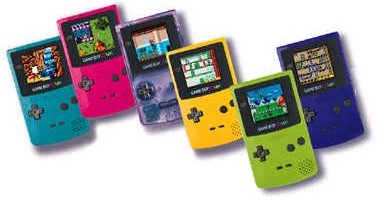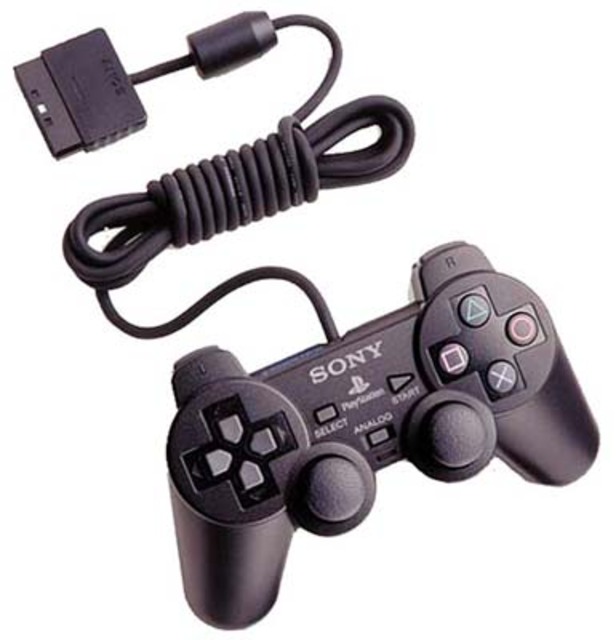Types of Backwards Compatibility
Software-Based Backwards Compatibility
 You could play games from the original Game Boy on the Game Boy Color.
You could play games from the original Game Boy on the Game Boy Color. The most common type of Backwards Compatibility found in the video game industry today.
Software-Based Backwards Compatibility lets older software work on newer hardware and/or newer software. For example, one would be able to play a game originally designed for the
Playstation on a
PS2. Another example of this would be playing a game designed for the Windows 95 operating system on Windows XP.
Software-Based Backwards Compatibility is so common that a lot of us take it for granted, even though it's usually a lot of work to get something originally designed to work on one thing to work on something entirely different.
Hardware-Based Backwards Compatibility
 Because the controller is identical, you can use a PS2 controller on a PS1. Hardware-Based backwards compatibility
Because the controller is identical, you can use a PS2 controller on a PS1. Hardware-Based backwards compatibility is less common in the video game industry, but it still has it's place.
Hardware-Based Backwards compatibility occurs when one piece of hardware, designed to work on older software and/or hardware, is also able to be used on newer hardware, through the use of using the same type of software installed on the new hardware and/or the same type of physical input. Sometimes,
Hardware-Based Backwards Compatibility is unintentional. For example, the controller port on the
Atari 2600 is the same as the controller port on the
Sega Genesis. The two consoles were manufactured by two different companies, and were released 12 years apart from each other, however, you can use either controller for either system. This case, and most other cases of
Hardware-Based Backwards Compatibility follow the law of Duel Compatibility as well, which leads us to the next section...
Dual Compatibility
Dual compatibility occurs when a new piece of hardware/software is able to be used on the product it is associated with, as well as older products, either intentionally or unintentionally. An example of this would be
DLC Tracks released for
Rock Band 2 being able to also be played on
Rock Band 1. Another example is the Dual-format discs that the Burger King promotional games
Sneak King,
Pocketbike Racer, and
Big Bumpin' came on, which allowed you to play the game on either the
Xbox 360 or the original
Xbox.
Forwards Compatibility
Forwards compatibility occurs when a product is designed to be "Future-Proof", meaning it will still be able to work once the new product comes out. Most of the time, this is transparent to the consumer, and therefore is interpreted by the public as
Backwards Compatibility, even though it was already planned ahead of time.
Log in to comment